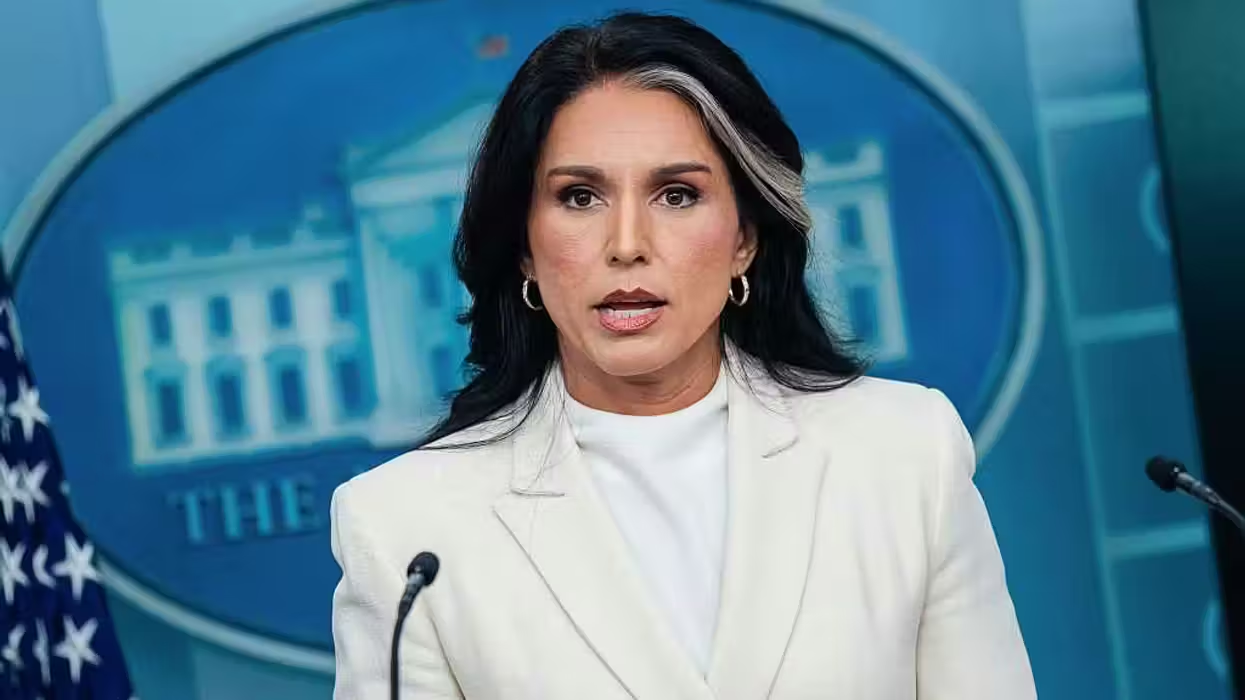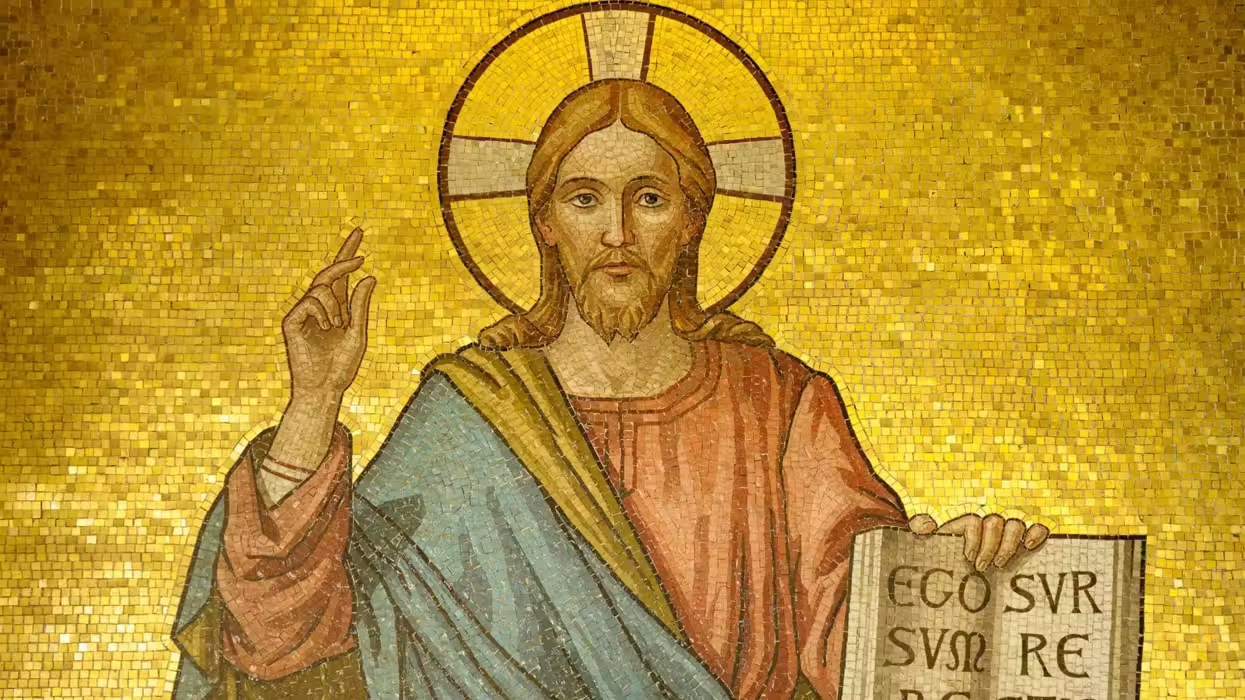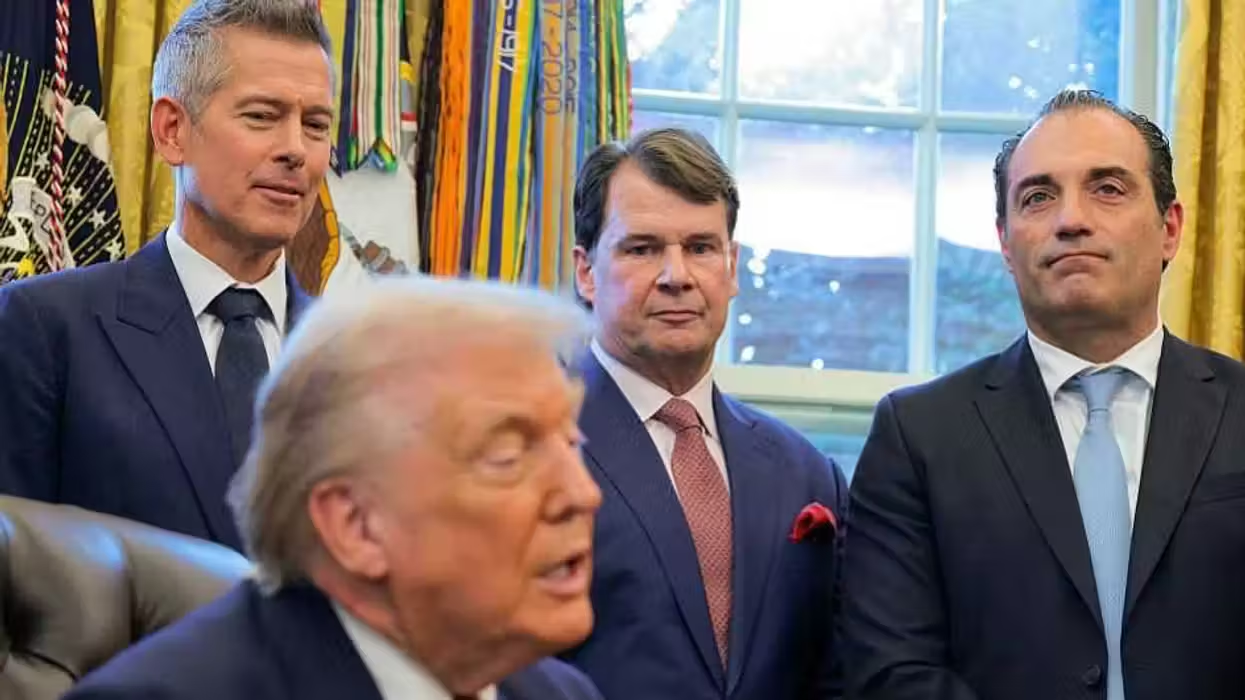New details are emerging about the religious motivations of Boston bombing suspects Tamerlan and Dzhokhar Tsarnaev and their recent interest in Chechnya, which experts say has become a hub for the extremist Saudi sect of Islam known as Wahhabism.
The brothers are ethnically Chechen, though Dzhokhar was born in the Russian republic of Dagestan while his deceased older brother Tamerlan was born in the neighboring Russian republic of Kalmykia. Their parents confirmed that Tamerlan visited Dagestan and Chechnya last year, but denied reports that he did so to engage in militant Islamist training.
University of Massachusetts-Dartmouth Professor Brian Glyn Williams, who mentored the younger Tsarnaev brother via email for his class on the War on Terror, noted the brothers' growing sense of Chechen identity.
Williams also posited that Tamerlan Tsarnaev became radicalized during his trip to Russia and also helped influence his younger brother.
 Tamerlan Tsarnaev, 26, left, and Dzhokhar Tsarnaev, 19.Credit: AP
Tamerlan Tsarnaev, 26, left, and Dzhokhar Tsarnaev, 19.Credit: AP
"That kid [Dzhokhar] and his brother identified with the Chechen struggle," he said in an email to Steve Urbon of South Coast recently.
“He was learning his Chechen identity, identifying with the diaspora and identifying with his homeland,” Williams said of Dzhokhar.
“He wanted to learn more about Chechnya, who the fighters were, who the commanders were. I sort of gave him background.”
Chechnya and Dagestan, separate Russian republics nestled in the North Caucasus, have majority Muslim populations that have long been influenced by Wahhabism, described by the U.S. Congressional Research Service as a "puritanical" form of Sunni Islam whose practice is centered in Saudi Arabia.
U.S. officials maintain that the Tsarnaevs acted on their own and were not connected with any other groups -- taking pains to affirm the innocence of two Saudi students questioned in Boston on the day of the bombings. One of those Saudi students, Abdul Rahman Ali Alharbi, was initially a person of interest in the bombings and Homeland Security Secretary Janet Napolitano confirmed Tuesday that he was placed on a terror watch list after the attack. An event file created by federal law enforcement agents on April 16 called for his visa to be revoked, citing a terrorism threat, and indicated he was not properly vetted before being admitted to the U.S.
While no current evidence links Alharbi to the Tsarnaev brothers, preliminary statements from the interrogation of Dzhokhar suggests the brothers were motivated by Islam. Additionally, the brothers appear to have been driven by a radical brand of Islam -- although U.S. officials claimed they do not seem connected to any Muslim terrorist groups.
That raises this question: Just how influential is Islam, and Saudi-Wahhabism in particular, in Chechnya and Dagestan?
Background on the region

Chechnya and Dagestan lost their independence to Russia some 200 years ago at the hands of Tsar Nicholas I and have been, in some way shape or form, fighting ever since.
In fact, Dr. Andrew Bostom, author of the scholarly volume, "The Legacy of Islamic Jihad," told TheBlaze that Chechnya, which first adopted Islam in the 7th Century, is indeed "the hub" for all jihadist activity in the entire Caucasus region. What's more, he also said it has also become a hub for the extremist sect of Sunni Islam known as Wahhabism.
According to Ksenia Svetlova, an analyst for Israel's Channel 9 who holds a doctorate in Middle Eastern Studies from the Hebrew University, Chechnya and Dagestan became a hotbed of Wahhabism from the early 1990s.
"Mosques and madrasas were opened; training camps for young combatants were established to prepare them for the 'jihad against the infidels,'" Svetlova wrote in an article explaining the region's bent towards radical Islam. According to the scholar, the teachings of Wahhabist jihadi Said Buryatsky "are among the most downloaded files in Chechnya."
Svetlova also notes that Wahhabists "send money to religious institutions around the world, including in Chechnya and Dagestan." By the late 1980s, Saudi Arabia also began sending clerics, scholars and "jihadist combatants" to the Caucasus, according to Svetlova.
Also worth noting is that Saudi Arabia has, according to Bostom, long been known to fund projects as simple as providing language-translations of the Koran and Hadiths, ensuring that people of all walks can digest Islamic sacred texts regardless of their mother tongue.
"That is often one of their most simple and legal forms of propaganda," Bostom told TheBlaze. "To get Koran and Hadith into every population and I am sure they did this in Caucasus, just as I'm sure they funded the jihadists against the Soviets just as they did in Afghanistan."
Wahhabism in the North Caucasus
Wahhabism, which originated in the Arabian peninsula during the 18th century, was meant as a return to a purer form of Islam by adopting a literal interpretation of the Koran and Hadiths. It is the predominant sect of Sunni Islam practiced in Saudi Arabia.
"Wahhabism became an attractive alternative to the complicated mystic ideology of 'normative' Sufi Islam for a certain segment of Chechen believers," noted Emil Souleimanov, author of "An Endless War: The Russian-Chechen Conflict In Perspective."
"It [Wahhabism] especially appealed to the militarized and--owing to the war--radicalized youth."
Souleimanov notes the irony in Chechen youths' adoption of Wahhabism as a form of personal freedom, given the sects ultra-conservative restraints.
"Yet in post-war Chechnya the egalitarian and militant spirit of Wahhabism seemed to be a desirable alternative to the rigid social structure." The author goes on to note that despite the Wahhabists strict, extremist bent, Chechens by and large will not renounce the sect nor even openly criticize it. Rather, Chechens applaud young ideologues for being honorable enough to refrain from drugs, alcohol and for allowing themselves to be martyred for their cause.
This, coupled with the fact that Wahhabi emissaries, according to the author, have often provided Chechens with charity, has gone a long way in creating a society that will likely refrain from acting out against the Wahhabi influence.
 Chechen leader Ramzan Kadyrov (C) wearing the national dress walks to take part in the Chechen language Day holiday in Chechnya's capital Grozny, on April 28, 2012.Credit: AFP/Getty Images
Chechen leader Ramzan Kadyrov (C) wearing the national dress walks to take part in the Chechen language Day holiday in Chechnya's capital Grozny, on April 28, 2012.Credit: AFP/Getty Images
What is perhaps most interesting about Chechnya, is that one would expect the republic's current pro-Putin government, led by Sufi president Ramzan Kadyrov, to soften the Islamic influence in the North Caucasus. Rather, Kadyrov, while an opponent of Wahhabism, is no moderate and has been outspoken in his desire to implement Sharia law in Chechnya.
This perhaps underscores the radical elements present even within the "moderate" sects of the North Caucasus.
Wartime and Wahhabism
While the first and second Chechnya Wars of the 1990s were characterized by many as simply "nationalistic" struggles for independence against the Russian Federation, experts note it was more about the establishment of an Islamic caliphate some Chechens have been after.
The first Chechnya War began before the collapse of the Soviet Union and lasted nearly two years, during which time thousands of civilians on both sides perished. The Soviets inevitably prevailed, but it was not before long an even more radicalized Chechen populace, under the banner of the Islamic International Brigade, challenged Moscow again, this time by invading Dagestan.
The pretext for Islamists was that Chechnya would overtake Dagestan and declare the two republics as a single, unified, independent Islamic state.
In 1997, ethnic Avar (the predominant tribe in Dagestan) and Wahhabist Bagauddin Magomedov, who served as "Emir of the Islamic Jamaat of Dagestan," fled to Chechnya to woo neighboring Wahhabi-leaders. Soon, an "Islamic Legion" was formed and by the Spring of 1999, Magomedov, according to Souleimanov, made an appeal to the "Islamic patriots of the Caucasus" to "take part in the jihad" and help in "liberating Dagestan and the Caucasus from the Russian colonial yoke."
Needless to say, the Russians weren't having any of it and, like the last time, they reigned victorious. What resulted was the installment of a pro-Moscow government in Chechnya (now led by President Ramzan Kadyrov) and a steady stream of low-level internal insurgencies coupled with more serious terror cell activity conducted by international jihadists who have used Chechnya as a base of operations.
Jihadi links with Chechnya and Dagestan
Chechnya has long been an outpost from which jihadists have operated.
 Zacarias Moussaoui's booking photo. Source: U.S. District Court Eastern District of Virginia
Zacarias Moussaoui's booking photo. Source: U.S. District Court Eastern District of Virginia
Consider the fact that 9/11 mastermind Osama bin Laden openly backed the Chechens in the 1990s during their wartime struggles against Russia, and 9/11 hijacker Zacarias Moussaoui was, according to the Wall Street Journal, “a recruiter for al-Qaeda-backed rebels in Chechnya.”
Chechen militants fought with al-Qaeda and Taliban forces against the U.S.-backed Northern Alliance in late 2001.
Even German al Qaeda operative Christian Ganczarski went on to Chechnya after becoming radicalized in Saudi Arabia, which has reportedly furnished thousands of international scholarships to young men in an effort to provide al Qaeda with a steady stream of new recruits.
Other Chechen-related jihadist attacks include the 2002 incident in which 40 terrorists -- mostly women in hijabs dubbed the "Black Widows" -- took more than 700 hostages at a Moscow theater demanding Chechen independence. In the end they blew themselves up in a suicide mission, claiming 100 other movie-goers.
Then, in 2004, jihadists demanding Chechen independence infamously set siege to a school in Beslan,
North Ossetia, taking 1200 hostage. While they were defeated in the end, the Islamists killed 334 hostages, including 186 children.
 This image taken from video and released Monday, Feb. 7, 2011 by The Kavkaz Center, a website affiliated with Chechen rebels, shows insurgent leader Doku Umarov speaking in a video in which he claims responsibility for deadly suicide bombing at Russia's largest airport.Credit: ASSOCIATED PRESS
This image taken from video and released Monday, Feb. 7, 2011 by The Kavkaz Center, a website affiliated with Chechen rebels, shows insurgent leader Doku Umarov speaking in a video in which he claims responsibility for deadly suicide bombing at Russia's largest airport.Credit: ASSOCIATED PRESS
What's more, Chechen jihadist Doku (Dokka) Umarov leads the Caucasus Emirate, a group designated by both the Russian Federation and the United States as a terrorist organization.
Umarov, who fought in both Chechnyan wars against Russia, is known as the Chechen Osama bin Laden.
He has claimed credit for ordering the Moscow airport bombing in January 2011 that killed 36 people and injured 180 others, and the March 2010 suicide bombings that targeted the Moscow subway system and killed 39 people. He also reportedly ordered the November 2009 bombing of a train to St. Petersburg from Moscow that killed 26 people, according to the BBC.
The Caucasus Emirate, which was linked to on Tamerlan Tsarnaev's reported YouTube page, is aligned ideologically and through its members, with al Qaeda and seeks the establishment of an Islamic State in the Caucasus.
Former CIA operative and senior fellow with the Center for Security Policy, Clare Lopez, told TheBlaze that there are many al Qaeda-Chechen ties.
"It's not all about Russia," Lopez said in an email. "It's about international jihad where Chechens can be found on every jihad battlefield...and now here in the U.S. too."

 Tamerlan Tsarnaev, 26, left, and Dzhokhar Tsarnaev, 19.Credit: AP
Tamerlan Tsarnaev, 26, left, and Dzhokhar Tsarnaev, 19.Credit: AP






